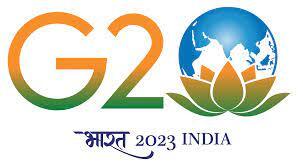G20 Can Overcome Financial Roadblock To Climate Resilience
Significance of the upcoming G20 Leaders’ Summit in New Delhi, as described by Dr. Seema Javed, noted writer and environmentalist

The upcoming G20 Leaders Summit in New Delhi on 9-10 Sept. is critical for shaping meaningful, pragmatic, and impactful outcomes at COP28 this year. It will decide on what G20 group of countries agree on energy and finance, the two key tracks within the negotiations.
The G20 energy, climate and environment track meetings ended last month with the Indian Presidency working hard to find a resolution on a range of issues.
This is most urgent given that the climate crisis is becoming the new reality and we are forced to deal with its consequences on a daily basis.
The UN has called for urgent support to developing countries to enable them to attract significantly more investment for their transition to clean energy.A significant increase in investment in sustainable energy systems in developing countries is crucial for the world to reach climate goals by 2030.
We must seize every opportunity to keep the 1.5 degrees within reach, effectively adapting to a changing climate and sufficiently responding to the different forms of losses and damages.
India’s priorities in the G20 climate agenda include sustainable development, climate resilience and equitable solutions. Climate resilience can only be achieved by adopting low-carbon emission technologies such as renewable energy( Solar, wind, micro hydro and biofuels).
According to a recent report Fanning the Flames by the International Institute for Sustainable Development (IISD) :- G20 members provided a record USD 1.4 trillion in public money to support fossil fuels in 2022. The study Provides Record Financial Support for Fossil Fuels. The amount—which includes fossil fuel subsidies (USD 1 trillion), investments by state-owned enterprises (USD 322 billion), and lending from public financial institutions USD 50 billion.
Which is more than double the pre-energy crisis levels of 2019, at a time when the climate crisis is only getting worse— from the fires in Hawaii to torrential rains in Beijing and floods across large parts of north India— the pace of action is far behind what is needed to build resilience, ensure adaptation and work on mitigating emissions.
Among the G20, there are divisions on increasing ambition for tripling global renewable energy capacity, phasing down unabated fossil fuel, doubling energy efficiency and agreeing on global peaking emissions no later than 2025. A central point of contention is the need for more available and affordable finance to support the transition.
India’s challenges to achieving the G20 climate goals include the reluctance of wealthy nations to phase out fossil fuels. Even though The Kyoto Protocol and the Paris Agreement call for financial assistance from Parties with more financial resources to those that are less endowed and more vulnerable. So far there has been little and inadequate support to developing nations through climate finance. The lack of definitional clarity over climate finance in COP27 has left no accountability for failed promises.
Developing countries are the least responsible for climate change but bear most of its brunt. Adaptation should address risks from climate change and extreme weather, for example by safeguarding agriculture, managing the impact of rising seas, and making infrastructure more resilient.
According to IISd researchers -G20 governments spend this massive amount of public money into fossil fuels despite the increasingly devastating impacts of climate change establishing a carbon tax floor of USD 25–50/tCO2e. These funds could help solve some of the most pressing issues of sustainability and climate resilience. The G20 Leaders’ Summit next month gives India a chance to become a facilitator of financial reforms if it can broker any agreement on lifting the utilisation and provision of finance.
The IISD report urges G20 members to raise an additional USD 1 trillion every year by setting minimum carbon taxation levels of USD 25–75/tCO2e.
Shifting G20 fossil fuel spending could install enough renewables to align with 1.5°C while tackling global hunger, energy access gaps. Just what the fourth and the final Environment and Climate Ministers’ Meet in Chennai adopted-Chennai High Level Principles for a Sustainable and Resilient Blue/Ocean-based Economy.
Meanwhile the developed countries in the face of the climate crisis should make climate finance more available, accessible, and affordable; doubling adaptation finance, operationalizing the loss and damage fund, tripling global renewable energy capacity by 2030.
The writer of this article is Dr. Seema Javed, an environmentalist & a communications professional in the field of climate and energy




